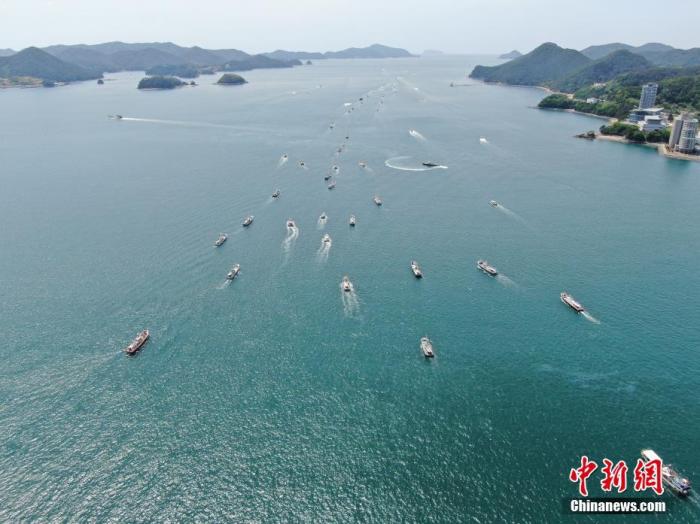China News Service, May 26. According to Korean media reports, Korea’s Minister of Health and Welfare, Kwon Duc-cheol, spoke at the World Health Assembly video conference on the 25th and urged the Japanese government and the international community to strictly verify the relevance of the Fukushima nuclear sewage disposal decision. Security information.
According to reports, Quan Dezhe expressed the hope that Japan can transparently disclose all relevant information. Considering this unprecedented decision, it is necessary for Japan to conduct adequate coordination and communication with stakeholders in advance.
The South Korean side also called on international institutions such as the World Health Organization and the International Atomic Energy Agency to objectively and impartially verify the Japanese decision.
On April 26, in Tongyeong City, South Gyeongsang Province, South Korea, 350 fishing boats went to sea collectively to protest Japan's plan to discharge nuclear sewage into the sea.
Photo courtesy of the Korea Tongyeong Geoje Environmental Movement Federation issued by China News Service
The Minister of Permanent Representative of Japan in Geneva, Yukio Masada, retorted that the Japanese government, based on scientific evidence, fully introduced the Fukushima Nuclear Power Plant and the “Multi-Nuclear Removal Equipment” (ALPS) nuclear sewage treatment situation to the international community.
He argued that the International Atomic Energy Agency also determined that relevant Japanese decisions have technical support and conform to international practices.
Lim Sung-fan, Deputy Minister of South Korea’s Permanent Representative Office in Geneva, expressed the hope that Japan will keep its promises and put it into practice, and expect the international community to objectively and impartially verify relevant decisions.
Various circles in South Korea have repeatedly condemned and worried about Japan's plan to discharge nuclear sewage into the sea.
Earlier in the video conference of the scientific group of the "London Convention" and "Protocol", the Ministry of Oceans and Fisheries of South Korea has formally raised the issue of Japan's discharge of nuclear sewage into the sea.
The Ministry of Maritime Affairs and Fisheries of South Korea emphasized at the meeting that Japan unilaterally decided to discharge Fukushima nuclear sewage into the sea without full consultation with neighboring South Korea and no understanding from South Korea.
Japan's discharge of nuclear sewage into the sea is a major issue that threatens the security of neighboring countries and the marine environment.
The Japanese government held a cabinet meeting on April 13 and officially decided to filter and dilute the million tons of nuclear waste water from the Fukushima Daiichi Nuclear Power Plant into the sea. The discharge will begin in about two years.

